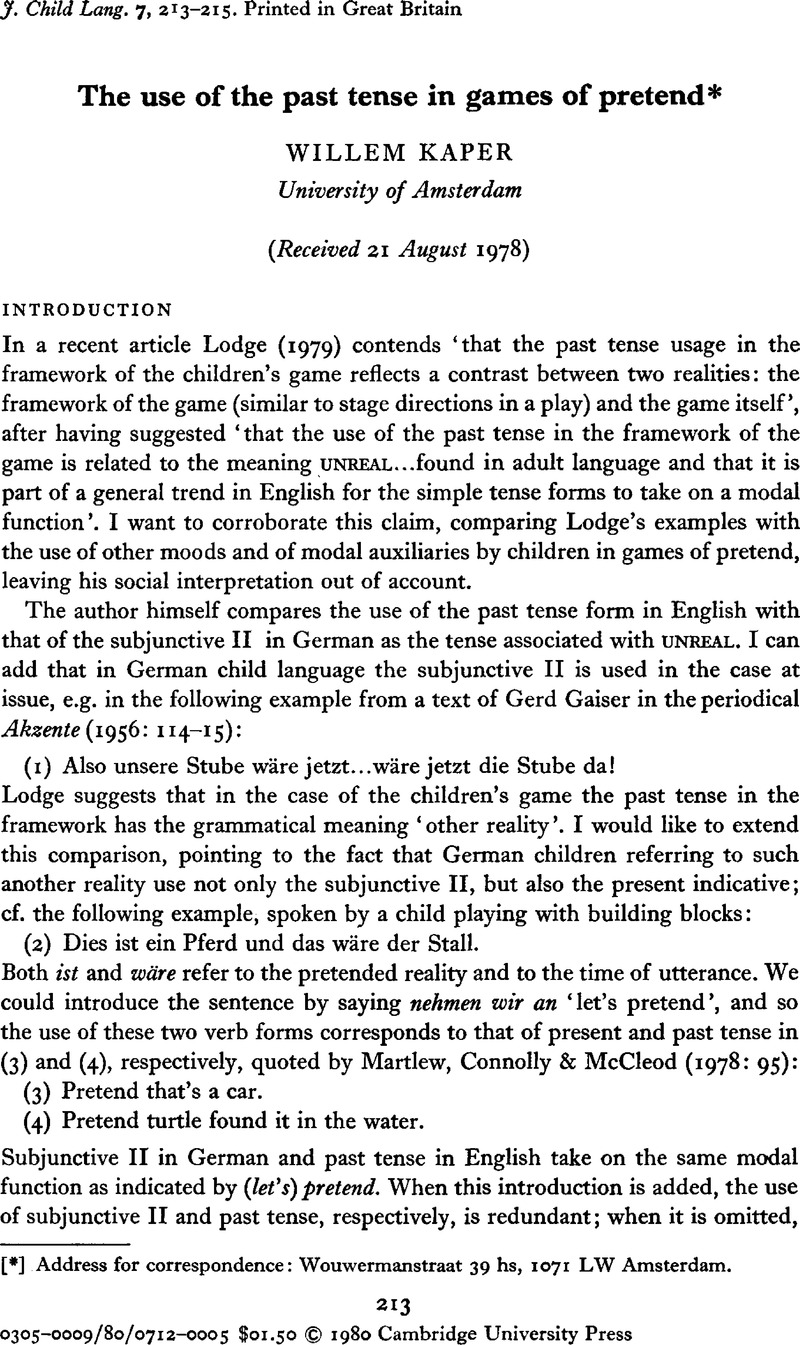Crossref Citations
This article has been cited by the following publications. This list is generated based on data provided by Crossref.
Garvey, Catherine
and
Kramer, Thayer L
1989.
The language of social pretend play.
Developmental Review,
Vol. 9,
Issue. 4,
p.
364.
Musatti, Tullia
and
Orsolini, Margherita
1993.
Uses of past forms in the social pretend play of Italian children.
Journal of Child Language,
Vol. 20,
Issue. 3,
p.
619.
Clark, Eve V.
1995.
Speech, Language, and Communication.
p.
304.
Kauppinen, Anneli
1996.
The Italian indicativo imperfetto compared to the Finnish conditional verb form — Evidence from child language.
Journal of Pragmatics,
Vol. 26,
Issue. 1,
p.
109.
Clark, Eve V
1997.
Conceptual perspective and lexical choice in acquisition.
Cognition,
Vol. 64,
Issue. 1,
p.
1.
Kauppinen, Anneli
1999.
Computation for Metaphors, Analogy, and Agents.
Vol. 1562,
Issue. ,
p.
196.
Rakoczy, Hannes
Tomasello, Michael
and
Striano, Tricia
2006.
The role of experience and discourse in children's developing understanding of pretend play actions.
British Journal of Developmental Psychology,
Vol. 24,
Issue. 2,
p.
305.
Morgenstern, Aliyah
Parisse, Christophe
and
de Pontonx, Sophie
2014.
« On dit pas Je veux ! ».
Language, Interaction and Acquisition,
Vol. 5,
Issue. 1,
p.
19.
Karniol, Rachel
2016.
A language-based, three-stage, social-interactional model of social pretend play: Acquiring pretend as an epistemic operator, pretending that, and pretending with (the P–PT–PW model).
Developmental Review,
Vol. 41,
Issue. ,
p.
1.
Verhagen, Arie
2019.
Shifting tenses, viewpoints, and the nature of narrative communication.
Cognitive Linguistics,
Vol. 30,
Issue. 2,
p.
351.
Clark, Eve V.
2023.
International Encyclopedia of Education(Fourth Edition).
p.
1.
Strand, Bror-Magnus S.
2024.
Playing With Fire Compounds: The Tonal Accents of Compounds in (North) Norwegian Preschoolers’ Role-Play Register.
Language and Speech,
Vol. 67,
Issue. 1,
p.
113.



